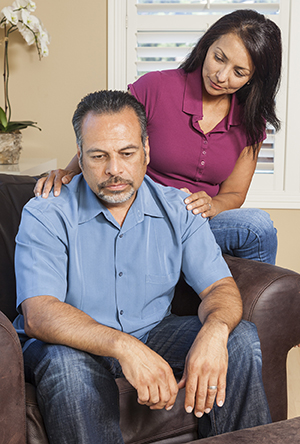People who are thinking about suicide may say or do certain things. These are signals that let you know they need help. Watch for these warning signs of suicide.
Warning signs
-
Threats or talk of suicide
-
Buying a gun or other weapon
-
Hoarding medicines
-
Saying things like, "I won't be a problem much longer" or "Nothing matters"
-
Giving away items they own
-
Making out a will, or planning their funeral
-
Suddenly being happy or calm after being depressed for a long time
-
Talking of being a burden to others
-
Increased use of alcohol, drugs, or other risky behaviors
-
Withdrawing from people and activities
-
Saying they feel hopeless or trapped
-
Sleeping too much or too little
-
Saying they feel there is no reason to live
-
Calling people to say goodbye
-
Having chronic, unbearable pain
Ask them
If you think a person may be suicidal, ask them. Say, "Have you thought about suicide?" Asking won't make them more likely to try to do it. People with suicidal thoughts may be relieved when the question is asked.
If they say "yes," they may already have a plan. They may know how and when they will try it. Find out as much as you can. The more detailed the plan, and the easier it is to carry out, the more danger they are in right now. Tell them you are there for them and don't want them to harm themselves. Don't wait to get help for them.
In a crisis, call 988
Call or text the 988 Suicide & Crisis Lifeline at
You can also call emergency services at
Never leave the person alone or out of sight. Take action. Remove anything they could use to harm themselves. This includes guns, knives and other sharp tools, pills, belts, and scarves. Guard access to rooftops and high windows.
To learn more
-
988 Suicide & Crisis Lifeline at 988lifeline.org or dial 988
-
National Institute of Mental Health at www.nimh.nih.gov or 866-615-6464
-
National Alliance on Mental Illness at www.nami.org or 800-950-6264
-
Mental Health America at www.nmha.org or 800-969-6642


